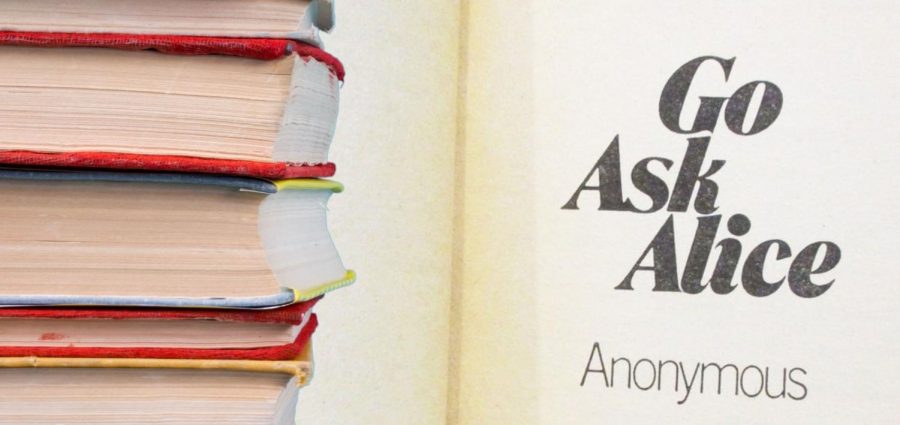Banned books replicate real life
September 28, 2021
One of my all time favorite books was one I found through exploring banned books in high school. The book was “Go Ask Alice” by Anonymous, and it was extremely impactful to me when I read it.
Reading was something I held close to my heart. I absolutely loved books that challenged my reality. Books offered a new reality to run to during my free time.
During my sophomore and junior year, I was obsessed with reading books from the banned book list. Many of the books on the list didn’t deserve to be banned. However, “Go Ask Alice” definitely belonged on the list.
When I saw this book on the list, I was intrigued because the author was anonymous. I decided to look for a copy. It wasn’t easy to obtain, but the search was certainly worth it. The copy I found was a small book. Its pages were yellowed with age. The condition perfectly matched the era the book was set in: the 1970s.
The format of “Go Ask Alice” is like a diary of a 15-year-old drug user. At first, the book seemed cheesy. Alice begins her journey like any other innocent girl until she accidentally overdoses on LSD at a party. She falls in love with the drug. The book follows Alice’s journey in the world of drugs, the formation of her debilitating addiction, and the actions that followed.
The more Alice suffered, the more I was hooked on the story. Alice’s story included homelessness, prostitution, bullying, coercion, relapse and death.
When I was reading this book, I was in a similar position as the main character. It was something I lived through and witnessed around me. I understood how hard it was to run away from reputation, how painful it is to hurt those around us. The hardest thing was the inner conflict no one could recognize. I had experienced a loss of control in my life while carrying agony with a smile on my face.
The most heart wrenching part was the moment I finished the book and saw the note which said the entire book was based on a 15-year-old girl’s diary. Her parents donated the diary after their daughter’s tragic death. After reading the book, I understood why it was a banned book.
Many of the topics involved in the book are extremely heavy and possible triggers, including mention of drug use and sex. “Go Ask Alice” was first banned in Michigan in 1974 for inappropriate language and sexual content. From there, more schools across the country started banning the book.
This book is still debated. The content is considered inappropriate for middle schoolers and early high schoolers.
It is closer to anti-drug propaganda to scare teens than a well written novel about hardship. After researching the book, I learned it is indeed fiction. It was initially published and advertised as a real diary from 1971 until 1979. Then suspicions about the author arose. Eventually it was confirmed to be an exaggerated story about the dangers of drugs by a Mormon youth counselor, Beatrice Sparks.
I believe the value of this book is to understand the consequences of addiction, but because this book was paraded as a true story for many years, it lost its impact.


